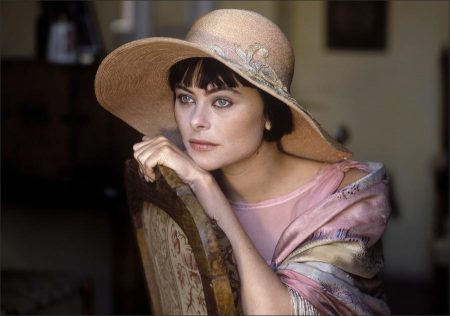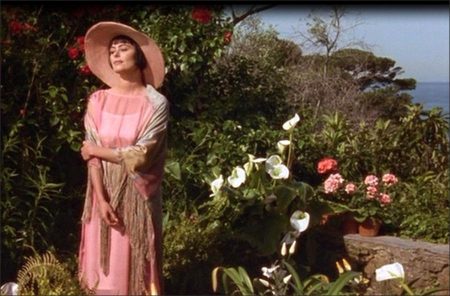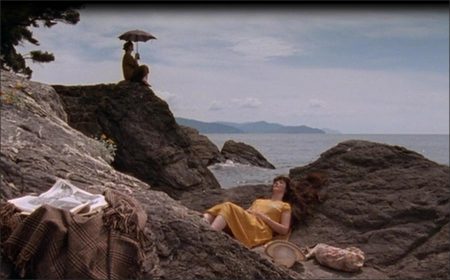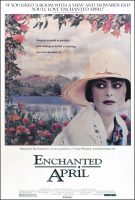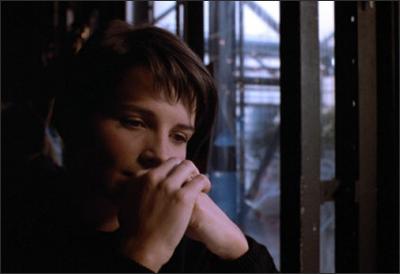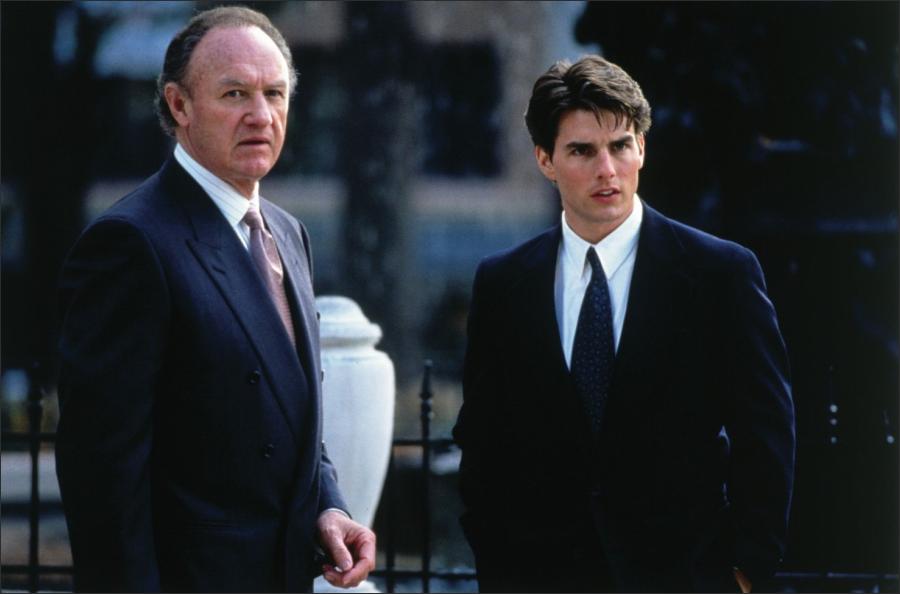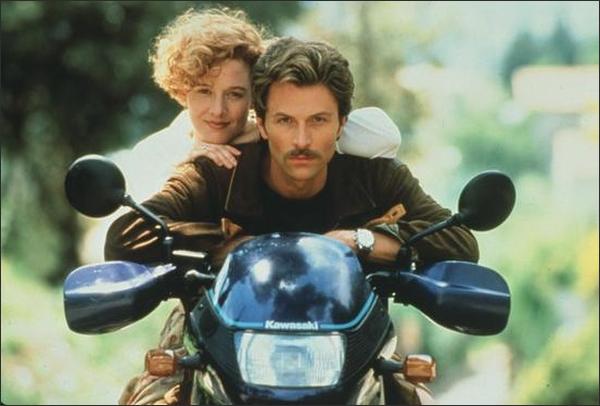Taglines: It’s April in Italy, and anything can happen…even love.
Enchanted April movie storyline. Poor Rose Arbuthnot, luminously played by Miranda Richardson — the murderous protagonist of Newell’s Dance — is too circumspect to confront her romance-novelist husband, Frederick (Jim Broadbent), about his cheating. But she does work up the courage to organize an April in Italy with her friend Lottie Wilkins (Josie Lawrence).
Men, including Lottie’s domineering husband, Mellersh (Alfred Molina), are not invited. Joining this low-key Thelma and Louise to share expenses are the glamorous Lady Caroline (Polly Walker), a social butterfly on leave from sex, and the sixtyish Mrs. Fisher (Joan Plowright), a widow whose acid tongue can’t hide her loneliness.
The sensual bloom of the Italian countryside, gracefully evoked by cinematographer Rex Maidment, loosens inhibitions and creates a strong bond among the women. Peter Baines, who adapted Elizabeth Von Arnim’s 1922 novel, has a knack for showing the strength women derive from each other. Though all the performances are beautifully realized, Walker is a stunning standout.
Enchanted April is a 1992 film directed by Mike Newell. The screenplay by Peter Barnes was adapted from Elizabeth von Arnim’s 1922 novel The Enchanted April. The film stars Miranda Richardson, Josie Lawrence, Polly Walker and Joan Plowright, with Alfred Molina, Michael Kitchen and Jim BroadbentMichael Kitchen, Polly Walker and Adriana Facchetti in supporting roles.
Film Review for Enchanted April
Just as the film “Howards End” whisked us off to an Edwardian world of soirees and receptions–a paradise with an asp in the flowers–“Enchanted April” (selected San Diego theaters), slides us back to a summery, High British past of literary epigrams and romantic yearning.
But there are no snakes here, except for the friendlier garden variety: nothing, finally, that will bite or provoke us. It’s a movie about a vacation–a perfect dream holiday–where all discontent is finally banished. Lovers find each other, troubled marriages are reconciled, crotchety old ladies glow with reawakened beneficence. And the sun pours its Mediterranean honey on the sea and hills of a Portofino villa shimmering with erotic energy and floral splendor–or as one character, in a momentarily slobbery phrase, describes it, a “tub of love.”
How can one dislike this movie? It has wit, romance, gentle rebellion, idyllic landscapes and fine actors savoring luscious lines. Only the undercurrent may bother a few: the hints of feminist revolt, beneath the sparkly surface. “Enchanted April”–based on a 1923 novel by Elizabeth Von Arnim–is a pure wish-fulfillment story, but there’s an acid edge to it. Another Illyria, a perfect vacation… but from what?
In “April’s” London opening, rain pours incessantly, marriages are traps, and even the four women vacationers seem a mismatch. The main two–desperately optimistic Lottie Wilkins (Josie Lawrence) and Rose Arbuthnot (Miranda Richardson), a straight arrow, with the face of a melancholy madonna–barely know each other when they spot an ad and make their getaway plan. Their companions, Mrs. Fisher (Joan Plowright) and Lady Caroline (Polly Walker), are recruited through another ad.
Frictions appear immediately. Mrs. Fischer is a literary snob, who demands references and frostily shoos people from her room. Lady Caroline is an idle rich beauty, bored with adoration. And it may be a flaw that all the problems of “April”–the month T. S. Eliot called the cruelest–vanish so quickly and completely, along with the marital squalls of Lottie and Rose, Lady Caroline’s ennui, the loneliness of Mrs. Fisher–almost as if they were dropped off Portofino’s cliffs and drowned summarily in the Tub of Love.
Von Arnim uses Italy as E. M. Forster often did: as idealized romantic escape from the soggy confines of the British class system. But she’s more superficially sunny-minded, more determined, like Lottie, to work everything out. There was a failed 1934 RKO version of “Enchanted April.” Directed by the plodding Harry Beaumont, it had noble Ann Harding as Josie, and Frank Morgan and Reginald Owen as the husbands. But this one captures the dialogue, the flavor, tone, even the locale: It was shot mostly at the Castello Brown in Portofino, where Von Arnim, inspired by her surroundings, wrote the novel.
Director Mike Newell has excelled at nightmare realism (“Dance With a Stranger”) and stumbled with Hollywood fairy tale (“Amazing Grace and Chuck”), but here, he has something both firm and feathery soft, and he and his entire cast–including Michael Kitchen as villa owner Briggs and Alfred Molina and Jim Broadbent (the cook-husband of “Life Is Sweet”) as the husbands–clearly enjoy themselves. Miranda Richardson–the tart victim-murderess of “Dance With a Stranger” drops priceless dollops of polite suspicion or dismay; Josie Lawrence could vanquish a parliament with her enthusiasm, and Polly Walker–beneath a menacing crown of Louise Brooks bangs–is an iron coquette.
And, at the heart of “Enchanted April” (MPAA-rated PG) is the sort of ripe grande dame turn at which British movies–in the age of Margaret Leighton or Edith Evans–used to excel. As Mrs. Fisher, Joan Plowright–who once wanted to play Josie, with Maggie Smith as Rose–almost suggests a female Donald Wolfit. Her brow is thunderous, her manner magisterially stern, and the names “Ruskin,” “Carlyle,” “Tennyson” and “Meredith”–her supposed literary companions–drop from her mouth like the plummy mantras of High Tory literacy. Never mind if God saves the Queen; she can fend for herself. God save Joan Plowright.
Enchanted April (1992)
Directed by: Mike Newell
Starring: Miranda Richardson, Josie Lawrence, Polly Walker, Joan Plowright, Alfred Molina, Michael Kitchen, Jim Broadbent, Michael Kitchen, Polly Walker, Adriana Facchetti
Screenplay by: Peter Barnes
Production Design by: Malcolm Thornton
Cinematography by: Rex Maidment
Film Editing by: Dick Allen
Costume Design by: Sheena Napier
Music by: Richard Rodney Bennett
MPAA Rating: PG for some mild language.
Distributed by: Miramax Films
Release Date: April 5, 1992
Views: 281
